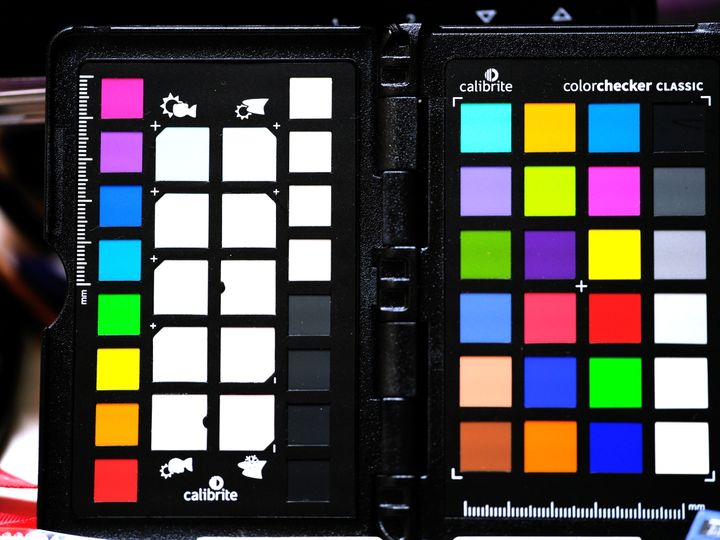QT 01/08/2025 Fri. Ezekiel 12. Reality: God's Warnings Are Real — Don't Delay Repentance 上帝的警告是真实的--不要拖延悔改

QT 01/08/2025 Fri. Ezekiel 12. Reality: God's Warnings Are Real — Don't Delay Repentance
READ http://www.esv.org/eze12
The Book of Ezekiel begins with the prophet receiving visions while in exile by the Chebar Canal, in Babylonia (modern-day Iraq) (Ezekiel 1:1–3). Ezekiel was one of the first wave of exiles taken from Judah to Babylon during the 597 BC deportation under King Jehoiachin, when Nebuchadnezzar conquered Jerusalem the first time.
In Ezekiel 12, it is probable that Ezekiel is still physically in Babylon, not Judah. But the visions, messages, and symbolic actions he delivers are often directed toward the people still living in Jerusalem — including prophecies of judgment, like the coming fall of Jerusalem, which happened later in 586 BC.
Why It Feels Like Ezekiel Is in Judah:
In Ezekiel 12, God tells Ezekiel to perform symbolic acts — like packing bags and digging through a wall — to dramatize the exile that is about to happen to those still in Jerusalem. Here’s an example:
"Say to the people of the land, Thus says the Lord God: This oracle concerns the prince in Jerusalem and all the house of Israel who are in it." (Ezekiel 12:10, ESV)
This gives the illusion that he’s addressing people in Judah directly. But he’s actually speaking from exile, to the exiles in Babylon, many of whom were still in denial, thinking they would return home soon.
Key Verse:
“Son of man, you dwell in the midst of a rebellious house...they have eyes to see, but see not, ears to hear, but hear not...” (Ezekiel 12:2)
Reflection:
Like the idols that many of the exiles of Ezekiel’s time worshipped, their idols have eyes carved out of wood or stone, or ears carved out from similar materials. They became like the idols they worshipped. Nothing surprising. We become who/what we worship!
Ezekiel 12 reminds us that God does not speak idly. The people of Judah were ignoring the warnings — they believed judgment wouldn't really come. They were spiritually blind and deaf, convinced that God's patience meant He wouldn't act.
Even the exiles in Babylon still held out false hopes of returning soon. But Ezekiel’s symbolic actions were God's wake-up call: Exile is not over — and judgment is not a joke.
Like them, we might unknowingly become numb to God’s Word. We hear warnings but think, “Not yet. There's time.” Ezekiel 12 challenges us to stop delaying repentance. When God speaks, we must respond — with humility, obedience, and urgency.
Prayer:
Lord, help me not to be like those who have eyes but do not see, and ears but do not hear. Your Word is alive and active. Soften my heart to obey You today. May I not delay repentance or treat lightly what You have spoken. In Jesus’ name. Amen.
QT 01/08/2025 星期五. 现实:上帝的警告是真实的--不要拖延悔改
阅读 http://m.bbintl.org/bible/ncv/Eze/12/
《以西结书》的开篇是先知在巴比伦(今伊拉克)的切巴尔运河边流亡时得到的异象(《以西结书》1:1-3)。公元前 597 年,尼布甲尼撒第一次征服耶路撒冷,耶和华钦王统治下的犹大被驱逐到巴比伦,以西结是第一批流亡者之一。
在《以西结书》第 12 章中,以西结很可能还在巴比伦,而不是犹大。但他所传达的异象、信息和象征性的行动往往是针对仍生活在耶路撒冷的人们--包括审判的预言,比如耶路撒冷即将沦陷,这发生在公元前 586 年。
为什么感觉以西结在犹大?
在《以西结书》第 12 章中,上帝告诉以西结要做一些象征性的行为--比如打包行李和挖开墙壁--来渲染那些仍住在耶路撒冷的人即将遭受的流放。下面就是一个例子:
"你要对他们说:‘主耶和华这样说:这默示(“默示”原文作“担子”)是关乎耶路撒冷的君王,和以色列全家。’(以西结书 12:10)。
这给人一种错觉,以为他在直接对犹大人说话。但实际上,他是从流放地,对巴比伦的流亡者说的,他们中的许多人还在否认,以为他们很快就会回家。
关键经文
“人子啊!你是住在叛逆的民族之中;他们有眼睛可以看,却看不见;他们有耳朵可以听,却听不见,因为他们是叛逆的民族。”(以西结书 12:2)
反思:
就像以西结时代许多流亡者崇拜的偶像一样,他们的偶像也有木头或石头雕刻的眼睛,或类似材料挖成的耳朵。他们变得和他们所崇拜的偶像一样。这并不奇怪。我们会变成我们所崇拜的人或物!
《以西结书》第 12 章提醒我们,上帝不会等闲视之。犹大人对警告置若罔闻--他们相信审判不会真的来临。他们在灵性上又瞎又聋,深信上帝的忍耐意味着祂不会采取行动。
即使是流亡在巴比伦的人,也仍然抱着不久就会回来的虚假希望。但以西结的象征性行动是上帝的警钟: 流放还没有结束,审判也不是玩笑。
像他们一样,我们或许也会对上帝的话语变得麻木。我们听到警告,却认为 "还没有。还有时间"。《以西结书》第 12 章挑战我们不要再拖延悔改。当神说话时,我们必须回应--带着谦卑、顺服和迫切。
祷告:
主啊,求你帮助我不要像那些有眼却看不见,有耳却听不见的人一样。你的话语是活泼的、积极的。今天,请软化我的心,让我顺服你。愿我不迟疑悔改,不轻视你所说的话。奉耶稣之名。阿门。


